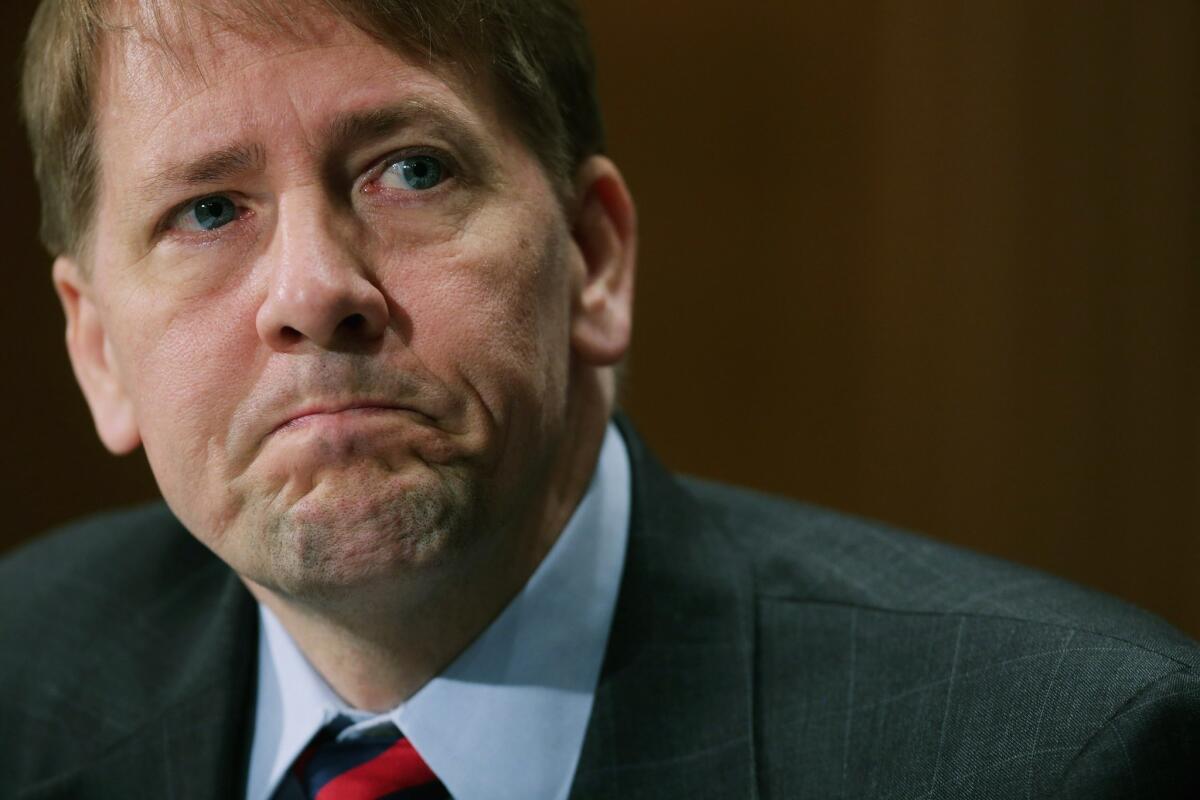GE Capital to refund $225 million to settle credit card allegations

Consumer Financial Protection Bureau Director Richard Cordray testifies at a Senate hearing on June 10.
- Share via
Reporting from Washington — GE Capital agreed to pay $225 million to about 750,000 customers to settle federal allegations of deceptive and discriminatory credit card practices, federal officials said.
The claims included an accusation that the financial firm barred Latino customers from participating in two company debt-repayment programs, the officials said.
The company’s retail banking unit will provide about $169 million in refunds or credits to about 108,000 customers who were not told about the repayment programs because they indicated they preferred to receive communications in Spanish or had a mailing address in Puerto Rico, the Consumer Financial Protection Bureau and Justice Department said Thursday.
“The blatant discrimination that occurred here is unlawful and will not be tolerated,” said Jocelyn Samuels, the acting assistant attorney general for the Civil Rights Division.
The settlement was the largest in a credit-card discrimination case in the department’s history, she said. The practices, which took place from January 2009 to March 2012, violated the Equal Credit Opportunity Act.
Samuels said the bank, now called Synchrony Bank, discovered the discriminatory practices and alerted the consumer bureau, which regulates credit card issuers.
So far, the bank, which did not admit or deny the allegations, has provided $131.8 million of the settlement money to its customers.
Dori Abel, a spokeswoman for GE Capital’s retail banking unit said company employees worked cooperatively with federal officials after the problem was discovered.
“Our priority is treating our customers fairly,” she said.
GE Capital, a unit of General Electric Co., also agreed to refund $56 million to 638,000 credit card customers who were subjected to deceptive marketing for debt-related products.
Federal officials said the company’s telemarketers misrepresented the costs and terms of those add-on products, such as Account Security and Debt Security.
For example, customers were misled into believing the programs were free or they were incorrectly told they would not be charged for the service if they paid their credit card balance each month, federal officials said.
“This kind of conduct has no place in the consumer financial marketplace,” said Richard Cordray, the consumer bureau’s director. “People deserve to be given clear information and they deserve to be treated fairly.”
In addition to the refunds, the bank will pay a $3.5-million civil penalty, Cordray said.
The bureau, created by the 2009 financial reform law, has been cracking down on banks for deceptive marketing of credit card add-on products. Since 2012, the bureau has obtained about $1.5 billion in refunds and $85 billion in fines for such cases.
Follow @JimPuzzanghera on Twitter
More to Read
Inside the business of entertainment
The Wide Shot brings you news, analysis and insights on everything from streaming wars to production — and what it all means for the future.
You may occasionally receive promotional content from the Los Angeles Times.











